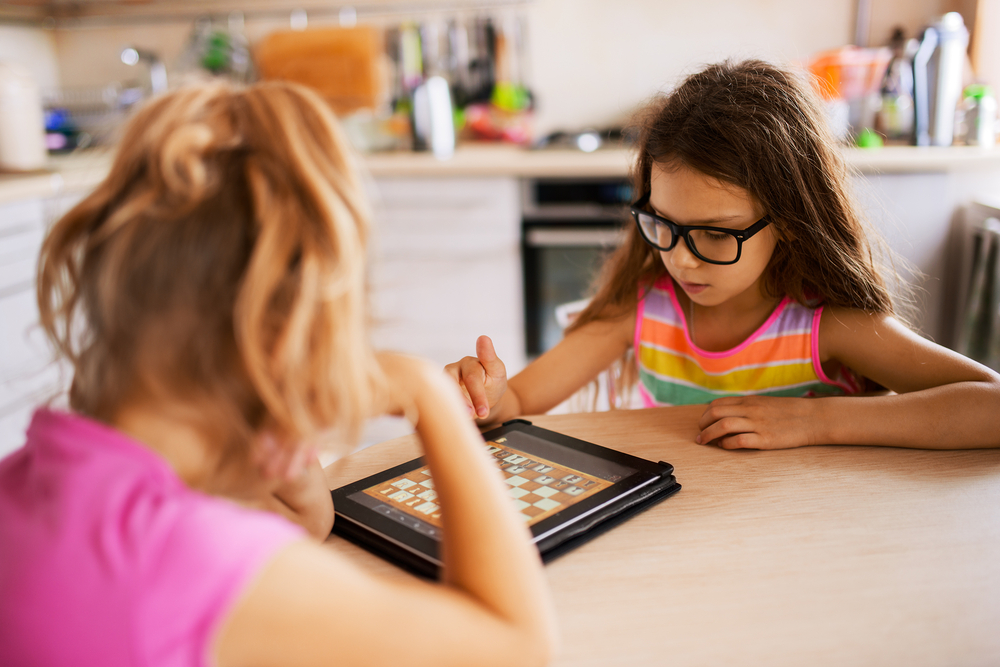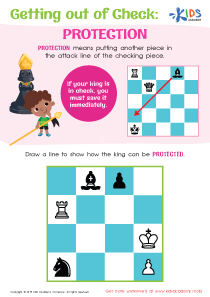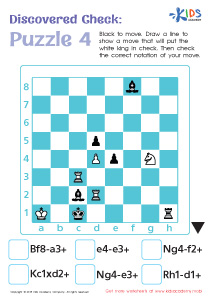Critical thinking enhancement Chess Worksheets for 7-Year-Olds
4 filtered results
-
From - To
Boost your child's critical thinking skills with our engaging Critical Thinking Enhancement Chess Worksheets for 7-Year-Olds! Designed to promote strategic thinking, problem-solving, and decision-making, these worksheets utilize the game of chess as a fun educational tool. Each activity encourages young learners to analyze situations, consider multiple outcomes, and develop essential cognitive skills while having fun on each chessboard adventure. Perfect for independent study or guided sessions, our resources provide a comprehensive approach to enhancing mental agility. Equip your child with the essential skills they'll need for academic success and beyond, all while enjoying the timeless game of chess! Explore our worksheets today!
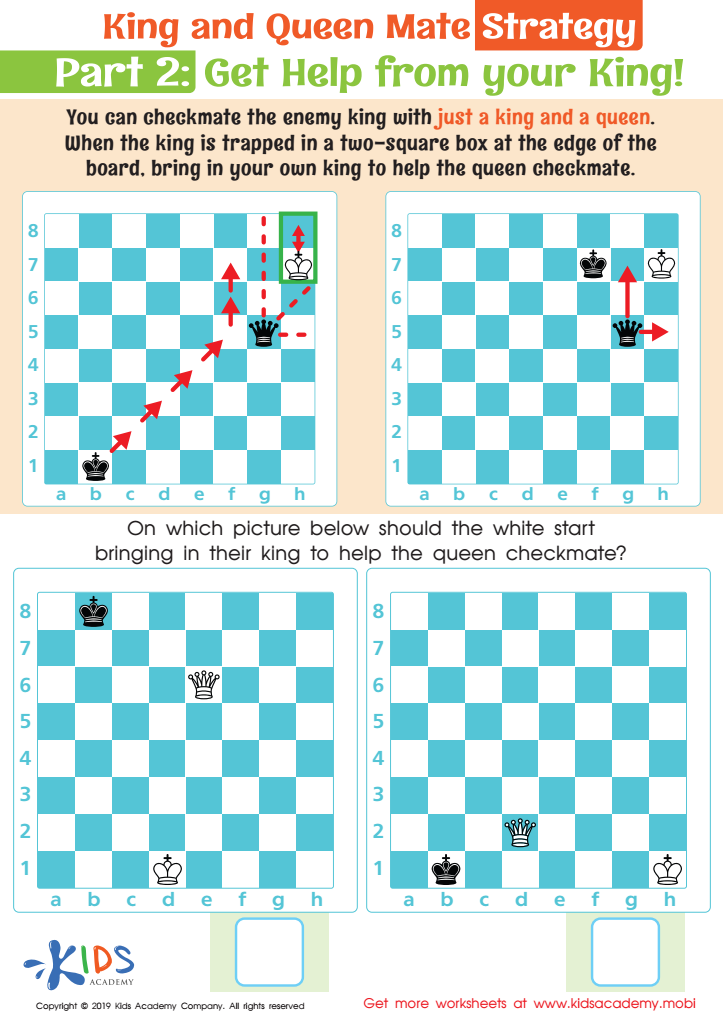

King and Queen Mate Strategy: Part 2 Worksheet
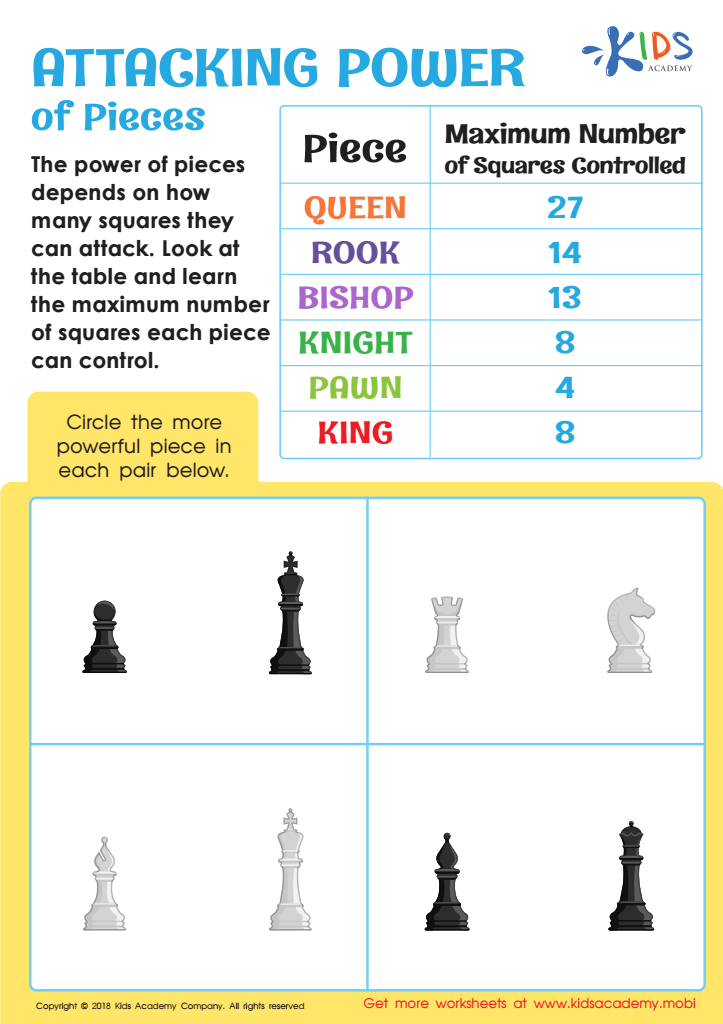

Attacking Power of Chess Pieces Worksheet
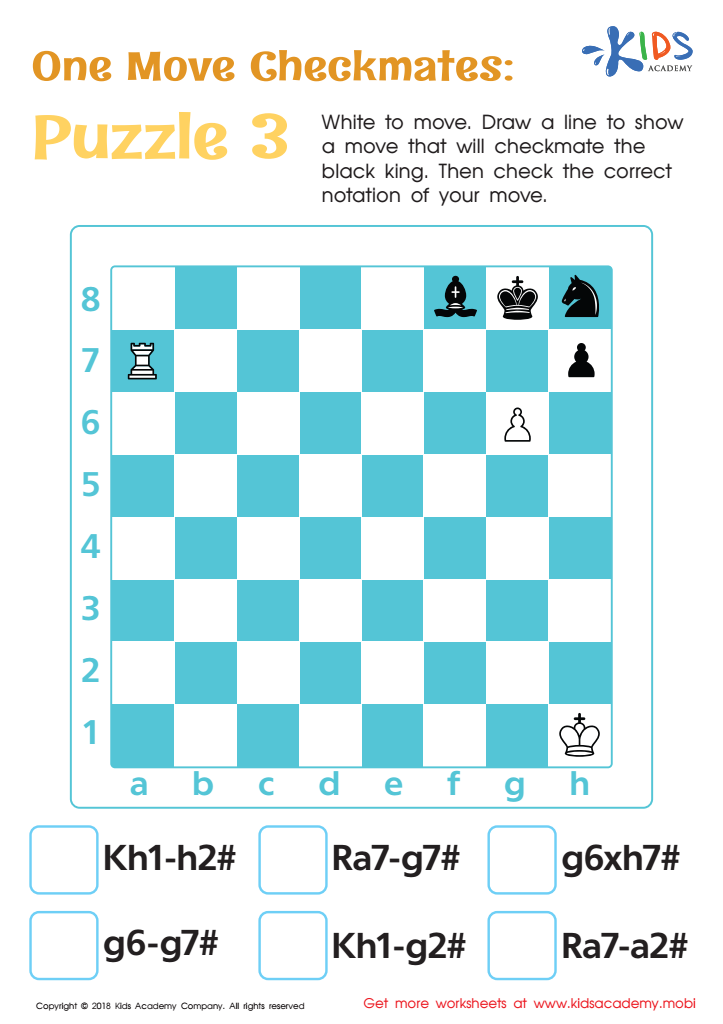

One Move Checkmates: Puzzle 3 Worksheet
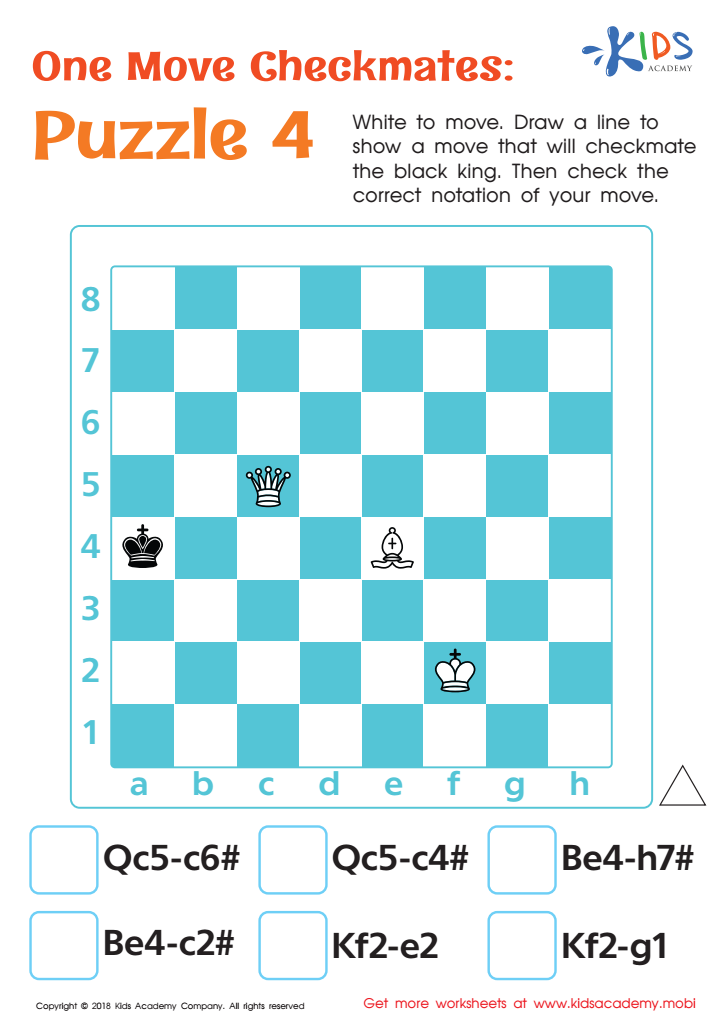

One Move Checkmates: Puzzle 4 Worksheet
Parents and teachers should care about critical thinking enhancement through chess for 7-year-olds because it fosters essential cognitive skills that are invaluable both in and out of the classroom. At this developmental stage, children are naturally curious and learning to think independently. Chess encourages them to analyze situations, anticipate consequences, and make strategic decisions. These skills enhance their ability to solve problems and think creatively.
Furthermore, playing chess promotes patience and perseverance, teaching children how to think ahead and stay focused, critical traits for academic success and personal growth. Engaging in chess also enhances emotional intelligence, as children learn to handle wins and losses graciously, fostering resilience.
Incorporating chess into educational or recreational settings can create a fun and challenging environment that captivates students’ attention. The social aspect of the game encourages collaboration and communication, building friendships and teamwork.
Ultimately, critical thinking skills developed through chess can translate to improved academic performance in subjects like math and science, where analytical skills are crucial. By supporting chess in their child’s activities, parents and teachers empower them to become thoughtful, strategic thinkers—equipping them for lifelong learning and success.
 Assign to My Students
Assign to My Students








